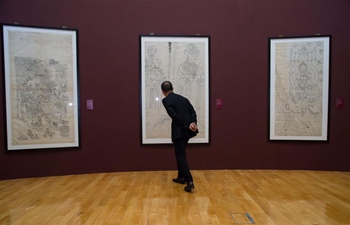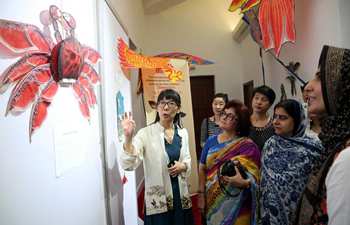by Marwa Yahya
CAIRO, May 23 (Xinhua) -- Egypt's Central bank raised its interest rates by 200 basis points on Sunday, citing the move would "anchor inflation."
However, according to economic and financial experts, the move would "withdraw market liquidity and irritate investments."
During its Monetary Policy Committee meeting, the bank increased its deposit rate up to 16.75 percent from 14.75 percent and its lending rate up to 17.75 percent from 15.75 percent, it announced in a statement.
The bank defended its stance by stating it is "not to offset the effect of supply impact but instead it is intended to curb inflation speculation and the build-up of demand pressure."
Raising interest rates, according to Mohamed Attwah, an economic professor at Mansoura University, "is one way to combat inflation and limit expenditure."
"The decision is neither good nor bad," Attwah told Xinhua, elaborating that the increased rates are not so high in order to affect depositors and lenders, but would negatively influence public debt by increasing it.
Rising interest rates would reduce consumption lending not investment lending, Attwah explained.
However, Ihab al-Desouqi, economics department chairman at Sadat Academy for Administrative Sciences, only sees the negative repercussions of the move.
Al-Desouqi said the move will not curb inflation, but rather cause inflation stagnation which would reduce investment opportunities as well as increase prices.
The bank however added in its statement that such "a flexible monetary framework is appropriate under a liberal exchange rate regime."
Egypt floated its currency in November to limit foreign currency shortage.
The official exchange rate of the U.S. dollar consequently rose from less than 9 pounds to over its current 18.03 pounds.
Currency release helped seal a three-year 12 U.S. billion dollar International Monetary Fund (IMF) deal, which stipulated ambitious reform programs including cutting subsidies and tax increases.
Prices soared after the central bank floated the currency, with annual urban inflation reaching 31.5 percent in April, the highest level of urban consumer price inflation in bank records since they were set in 2005.
Al-Desouqi believes that "hiking interest rates may not be the best tool to curb inflation and might cause investment problems due to high debt rate costs."
Increasing interest rates is one of the IMF's recommendations to combat inflation as it would reduce markets' circulating liquidity, hence reducing commodity and service demand, he added.
Nevertheless, "I don't see the bank move as beneficial, because inflation causes in Egypt are attributed to lower product supply rather than higher demand due to the dollar's increased value," noted al- Desouqi.
He underlined that the only solution to solve inflation is through reforming and improving production structural systems, increasing exports and reducing imports.
Hany Barzy, head of the Food Export Council, agrees with al-Desouqi that raising interest rates would further aggravate an already ailing industry.
Describing it as "a surprise move," Barzy added that higher rates would move markets from "investments to private savings, therefore leading to stagnation."

















